WordPress is the most popular content management system available online, in part thanks to plugins.

Here’s our WordPress plugins guide.
WordPress is a straightforward blogging tool which contains open source software so anyone can change the code to make improvements. WordPress is also available for free, with plugins, themes, widgets and other features sometimes costing money to provide security, hosting, support, payment options and much more.
WordPress has good support and frequent updates, with new features and a huge variety of templates and designs to choose from. In addition, there are more than 60,000 of plugins to choose from for your website.
May 2025 Offer – For a Limited Time Only:
Get WordPress 99+ Plugins Mega Bundle for 15% off! Don’t miss out!
1) What Is A WordPress Plugin?

A WordPress plugin is a piece of software that is added to a WordPress website to perform a specific function or group of functions. Plugins extend the functionality of WordPress platform and by that adds new abilities to your website.
Some WordPress plugins are available for free, while others cost money, usually a one-time fee and then the option for annual updates and support. Plugins are written in the PHP programming language and complete functionalities like security, design, social media, e-commerce and much more.
2) What Should I Look For In A Plugin?
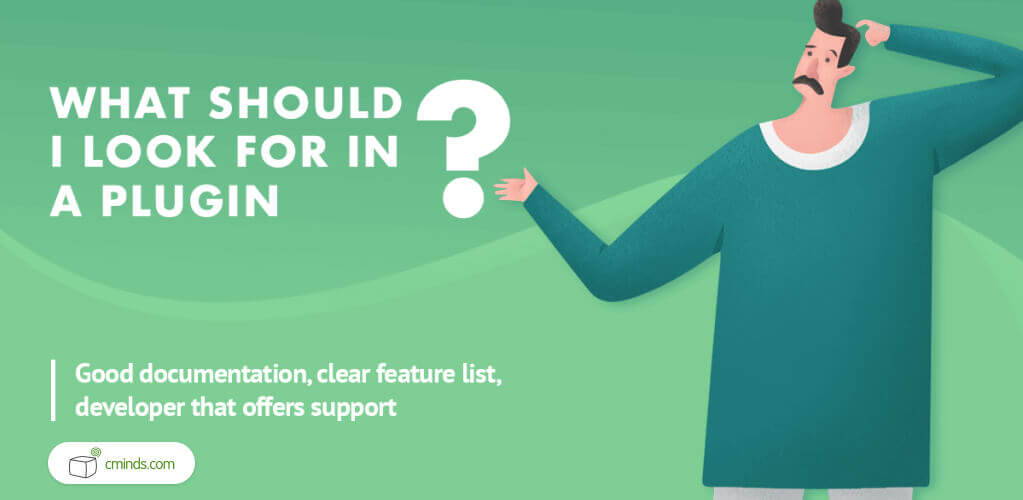
User should always pick a plugin which provides a solution for a problem they are trying to solve on their website. Decide what you want or need the plugin to accomplish for you, which also creates a list of important items what your website needs to fulfill, such as security, backend tasks or online payments.
You should also consider checking the list of essentials plugins which are needed to extend the basic WordPress functionality. For example a security plugin which make WordPress more secure, an SSL plugin which turn every connection to https and more
Do your research. Create a list of features you want your website to include and research online for the WordPress plugins which not only accomplish these tasks, but they are the top-rated and best options for accomplishing the tasks.
Another good feature to look for in a plugin is who the developer of the plugin is. Developers can release their own plugins or companies can create and release dozens of plugins from developers. These plugins tend to have excellent support options which are also key to finding a good plugin.
Having access to help and support options is a good idea because your website will have issues so it’s important they are addressed quickly, through email, chat support, or documentation options.
3) Will The Plugin Slow My Site?
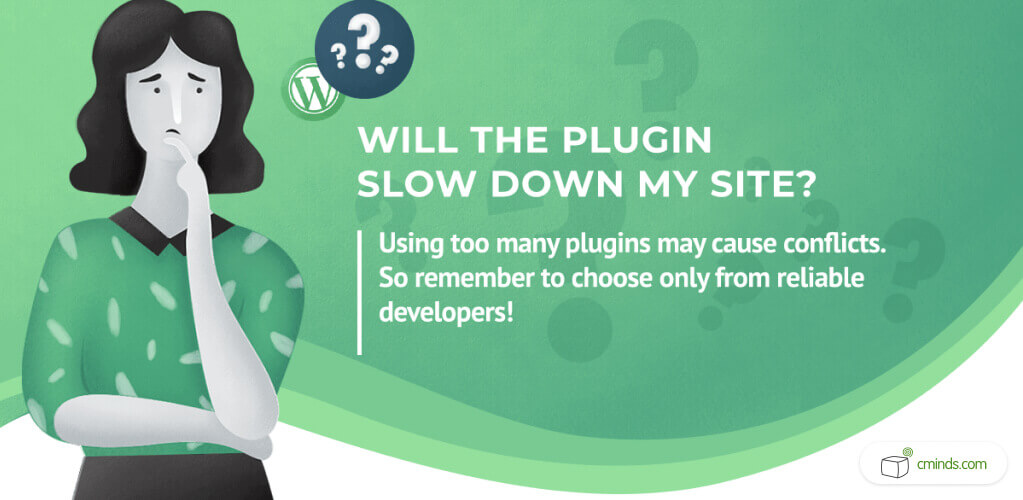
WordPress is a strong framework whose potential is nearly unlimited with the addition of plugins. It’s a myth that plugins will slow down a website once they are installed. Only poorly coded or bad plugins will slow down your website, and it only takes one.
Installing plugins adds more code to your WordPress website and the more code your page has to load, the slower it can load, unless it’s coded well.
Many websites have dozens of WordPress plugins and their site speed is not affected, but that doesn’t mean you should just install whatever you want. The number of WordPress plugins you install should be the number of plugins your website actually needs.
It’s a good idea to run a speed test after you install a plugin to make sure it doesn’t affect your site speed. Gtmetrix is a good option, and it’s important to note that plugins with overlapping uses may cause compatibility issues.
Choosing well-known and high rated brands is a good way to avoid bad plugins in general. Also, it reduces the possibility of conflict with other plugins and additional resource usage, since well-known plugins tend to be high quality, multifunctional and overall less problematic.
4) Should I Pay For The Plugin??
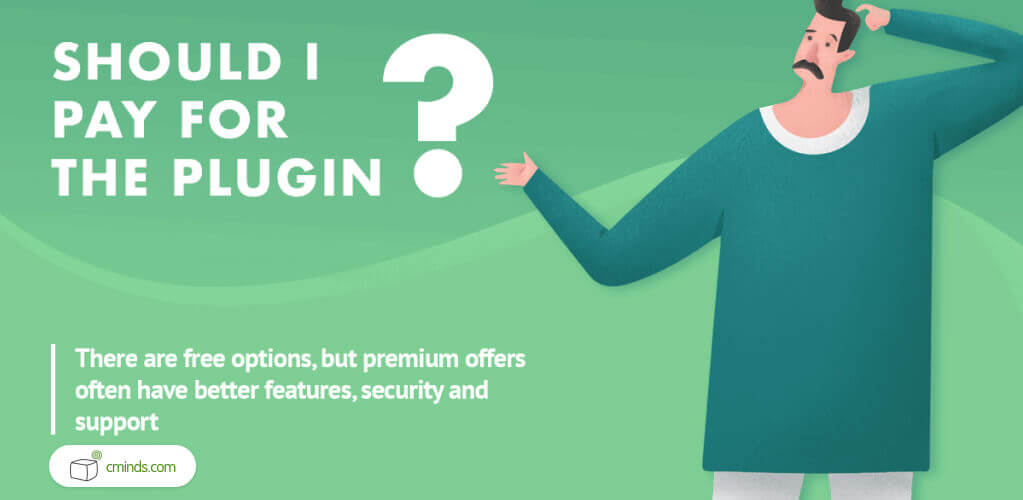
WordPress is the most popular website builder in part because it offers access to thousands of free and premium plugins for users. However, many free WordPress plugins are plagued with problems, like being unfinished or abandoned by the developer, which also means no support and no updates are available.
Premium plugins come at a cost, but that cost provides additional features, top-notch support options and regular updates. These plugins are fully complete and provide users with advanced functionality. Make sure to read about all the features and support options a plugin has before purchasing.
CreativeMinds plugins offer helpful email and live chat support as well as detailed documentation options. In addition, these WordPress plugins are constantly updated and improved with new features and are purchased once for life-time use.
5) Is The Plugin Safe? Why Does That Matter?
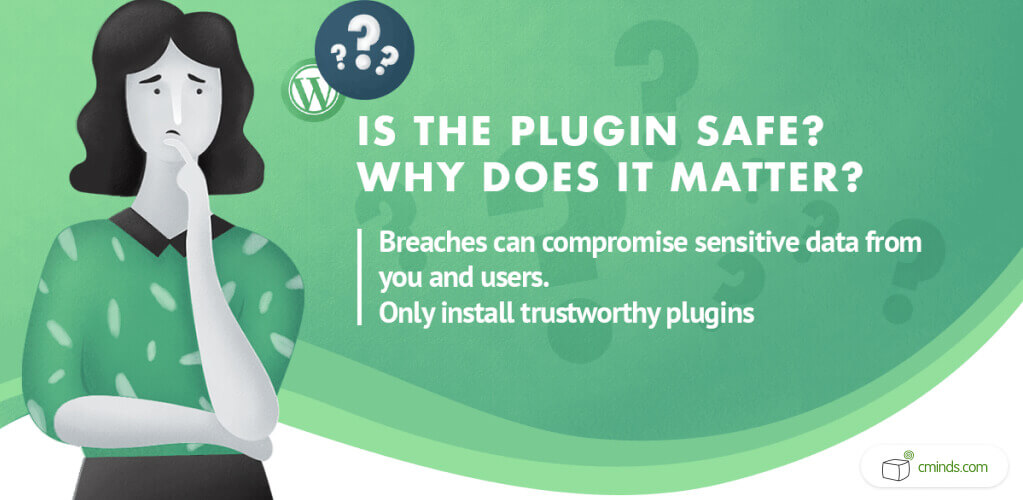
In the digital age, it is important to protect your data. While WordPress offers a whole host of security plugin options, any plugin you install could have security vulnerabilities. WordPress itself releases security patches to the core system, but any breaches through plugins can compromise sensitive data.
When choosing plugins, both simple and advanced, it’s important to check if they are updated frequently to cover bug fixes, which are essentially coded patches to improve security and functionality. Especially when buying or selling with WordPress, any data breach can be catastrophic to your website and business.
6) Should I Update My Plugin?
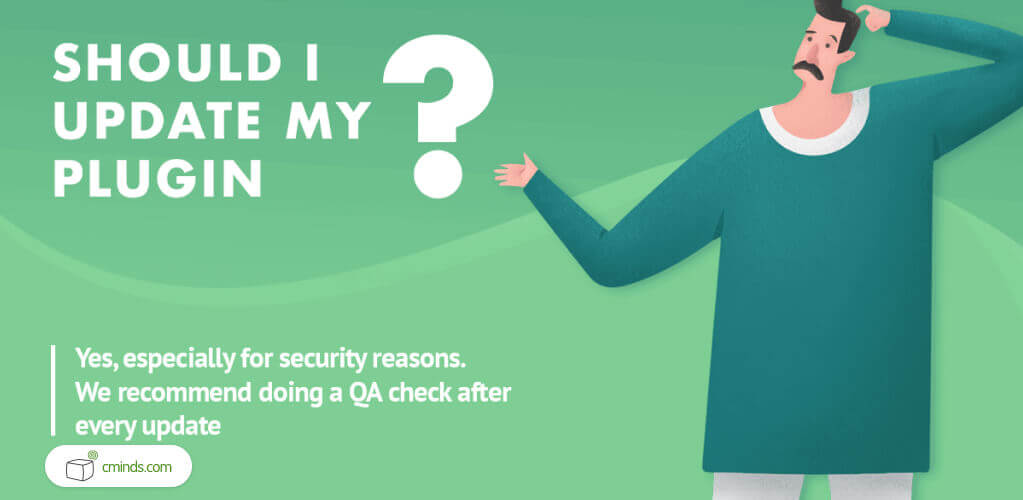
Any plugin that is downloaded and installed on your WordPress website should be updated since updates include increased security and keep your website protected constantly.
If a plugin has updates available, they will be available through the Updates tab on the left side of the admin panel in the backend. Simply select the plugin that who want to update from the dashboard and click “Update Plugins.”
A helpful guide to both installing and updating your WordPress plugins can be found here. It’s a good idea to do a QA check after installing updates to make sure that the fixes or the features are working properly.
7) Where Do I Find Plugins?
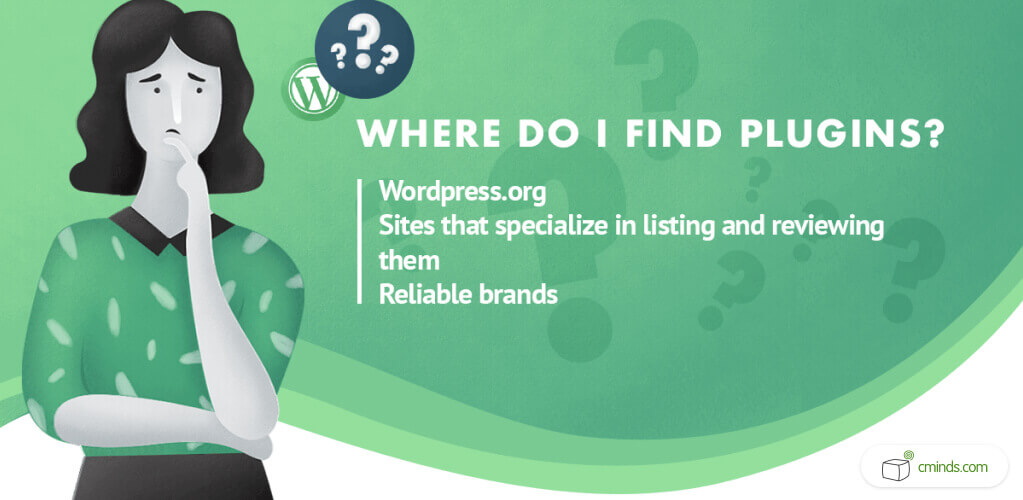
WordPress plugins are available for free from WordPress.org, where users can search and browse for plugins in the plugin directory by category, name, or keyword. Plugins can be downloaded from there and installed on your website.
Many third-party developers and companies create their own WordPress plugins, which results in users have hundreds of options to choose from between both free and premium plugins across the globe.
Because the field of WordPress plugins is so thick, it’s important to do research and fine reliable and highly reviewed brands to get your WordPress plugins from, so they will be the most functional and least problematic.
WordPress Plugins Guide Conclusion
In conclusion, WordPress is the most popular content management system, which has thousands of both free and premium plugins available to it. There are many places to find these plugins and it is important to install plugins which improve the overall functionality if your WordPress website.
It’s also key to keep your plugins updated constantly and to run checks after installing plugins and installing updates to make sure your plugins are running smoothly and that there have been no security breaches.


